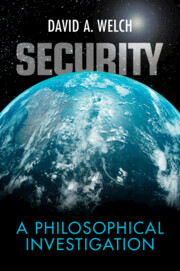6 - Human Security
Published online by Cambridge University Press: 18 August 2022
Summary
Our final stop on this particular tour of security referents is the individual human being. In saying this, I do not mean to prejudge debate about exactly what the term ‘human being’ denotes; which attributes of human beings (if any) are essential and which accidental; whether it makes sense to speak of human beings in the abstract, as opposed to (only) in concrete social or cultural contexts; or whether speaking of the individual human being as ‘the’ human security referent is the best – or only – way to make sense of the concept of human security as it has been articulated, operationalized, explored, or criticized by scholars, policy makers, activists, or anyone else who has engaged with it. As we shall see, these are all live issues. I simply mean to say that I will land on positions on all of them. I will, of course, do my best to give satisfactory reasons for those positions as I go along.
Keywords
- Type
- Chapter
- Information
- SecurityA Philosophical Investigation, pp. 159 - 190Publisher: Cambridge University PressPrint publication year: 2022

